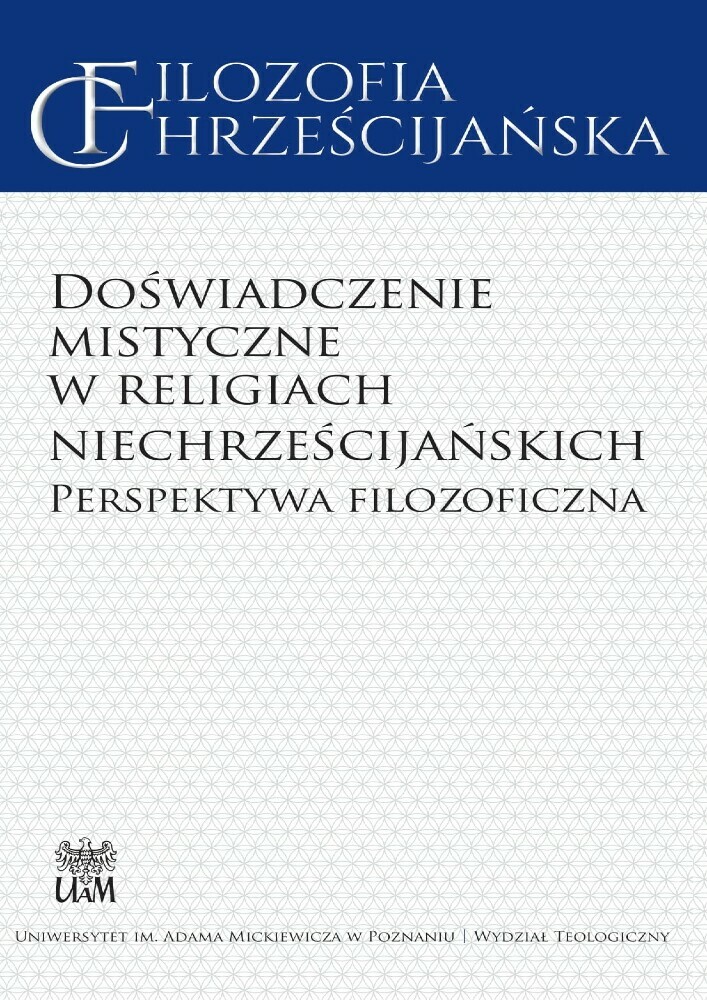Abstract
The philosophy of Xavier Zubiri is recognized as one of the most diffi cult to understand because there is something unclear in it. Therefore one may guess that there is a hidden presumption done by Zubiri. Zubiri in the self-presentation of his philosophical backgrounds acknowledges that his philosophy owes most to the phenomenology of Husserl and metaphysics of Heidegger. He also admits of being infl uenced by Aristotle to a certain degree. Zubiri starts his analyses from perception of things, with which he fulfi lls phenomenological requirement of beginning philosophy with the description of reality. As the fi nal step he ads metaphysics, which explains the description of reality. Following this code of interpretation of Zubiri’s philosophy it is difficult to grasp its core meaning. What is this hidden supposition? In The Supernatural Being: God and Deifi cation in Saint Paul’s Theology, which he wrote in the 30s’ and 40s’ of the 20th century, Zubiri presents early Christian Neoplatonic theology. In the same work Zubiri also states that it is possible to discover the same ideas following the way up, i.e. departing from the creatures and ascending to God. And this will be the hidden supposition of his philosophy. This paper tries to show the philosophy of Zubiri can be understood as a kind of proof that the Neoplatonic vision of the reality presented in The Supernatural Being: God and Deifi cation in Saint Paul’s Theology is true and can be discovered by reason alone, i.e. departing only from description of facts.
References
Díaz Muñoz G., Teología del misterio en Zubiri, Barcelona 2008.
Domínguez E.J., Deificación en el pensamiento de Xavier Zubiri, [la tesis doctoral], Salamanca 2002.
Gadamer H.-G., Prawda i metoda, trad. B. Baran, Kraków 1993.
García J.J., El poder de lo real en Xavier Zubiri y su lectura de los padres griegos, “ The Xavier Zubiri Review” 4 (2002), p. 19-66.
González A., El eslabón aristotélico, „Cuadernos salmantinos de fi losofía” XXXV(2008), p. 5-36.
González A., Los orígenes de la refl exión teológica de Zubiri, „Theologica Xaveriana” 179 (2015), p. 209-250.
Gracia D., El poder de lo real. Leyendo a Zubiri, Madrid 2017.
Pintor-Ramos A., Realidad y verdad. Las bases de la fi losofía de Zubiri, Madrid 1994.
Sáez Cruz J., La causalidad personal: una propuesta zubiriana en diálogo con Mario Bunge, parte I, “The Xavier Zubiri Review” 10 (2008), p. 37-89.
Zubiri X., Acerca del mundo, Madrid 2010.
Zubiri X., Espacio, Tiempo, Materia, Madrid 1996.
Zubiri X., Estructura dinámica de la realidad, Madrid 2006.
Zubiri X., El hombre y Dios, Nueva edición, Madrid 2012.
Zubiri X., Inteligencia sentiente, vol. I: Inteligencia y realidad, Madrid 2011.
Zubiri X., Respectividad de lo real, en: Realitas III-IV, Trabajos del seminario Xavier Zubiri, Madrid 1979, p. 13-43.
Zubiri X., El ser sobrenatural: Dios y la deificación en la teología paulina, en: X. Zubiri, Naturaleza, Historia, Dios, Madrid 2007, p. 454-542.
Zubiri X., Sobre el problema de la fi losofía y otros escritos, Madrid 2002.
Zubiri X., Sobre la realidad, Madrid 2001.
Zubiri X., Sobre el sentimiento y la volición, Madrid 1992.
License
Autorzy
Autorzy tekstów przyjętych do publikacji w czasopiśmie Filozofia Chrześcijańska są zobowiązani do wypełnienia, podpisania i odesłania na adres redakcji umowy o udzielenie nieodpłatnej licencji do utworów, z zobowiązaniem do udzielania sublicencji CC.
Zgodnie z umową, autorzy tekstów opublikowanych w czasopiśmie Filozofia Chrześcijańska udzielają Uniwersytetowi im. Adama Mickiewicza w Poznaniu niewyłącznej i nieodpłatnej licencji oraz zezwalą na użycie sublicencji Creative Commons Attribution-NoDerivatives 4.0 International (CC BY-ND 4.0).
Autorzy zachowują prawa do dalszego, swobodnego rozporządzania utworem.
Użytkownicy
Zainteresowani użytkownicy internetu uprawnieni są do korzystania z utworów opublikowanych od 2015 roku w Filozofia Chrześcijańska pod następującymi warunkami:
- uznanie autorstwa - obowiązek podania wraz z rozpowszechnionym utworem, informacji, o autorstwie, tytule, źródle (odnośniki do oryginalnego utworu, DOI) oraz samej licencji;
- bez tworzenia utworów zależnych - utwór musi być zachowany w oryginalnej postaci, nie można bez zgody twórcy rozpowszechniać np. tłumaczeń, opracowań.
Do wszystkich tekstów opublikowanych przed 2015 r. prawa autorskie są zastrzeżone.
Inne
Uniwersytet im. Adama Mickiewicza w Poznaniu zachowuje prawo do czasopisma jako całości (układ, forma graficzna, tytuł, projekt okładki, logo itp.).
